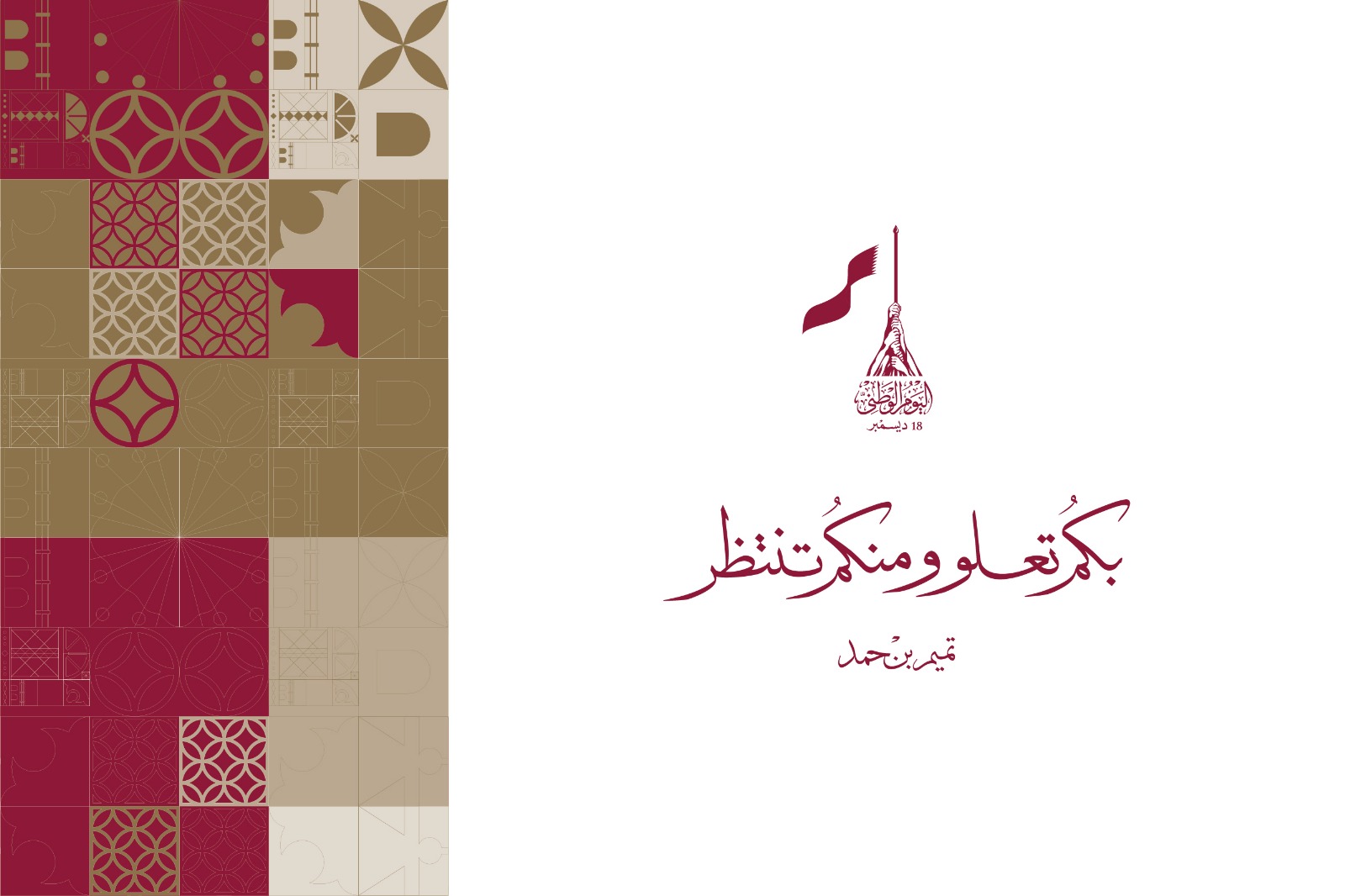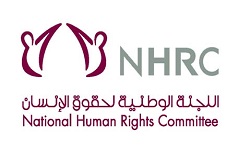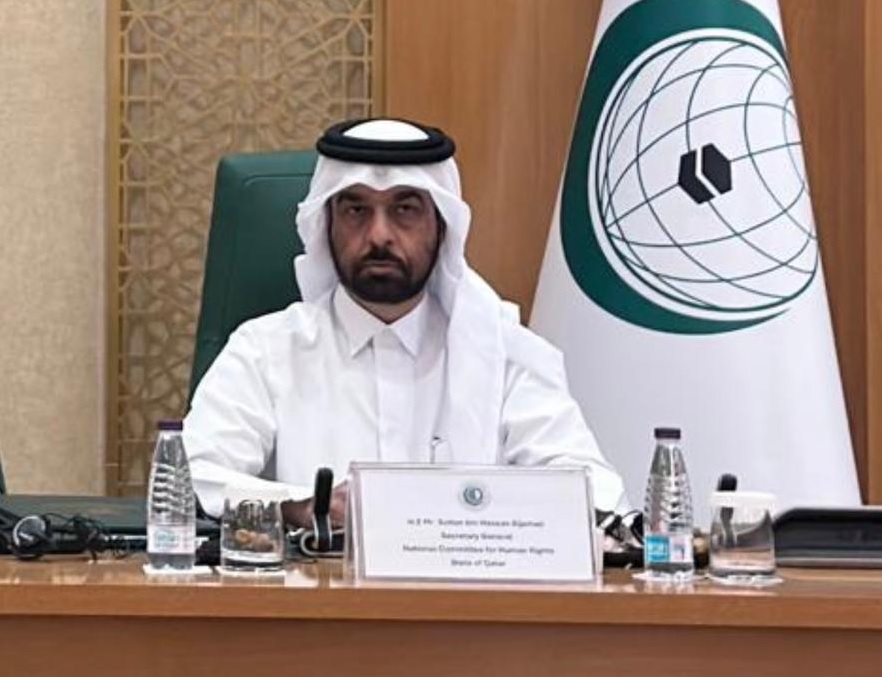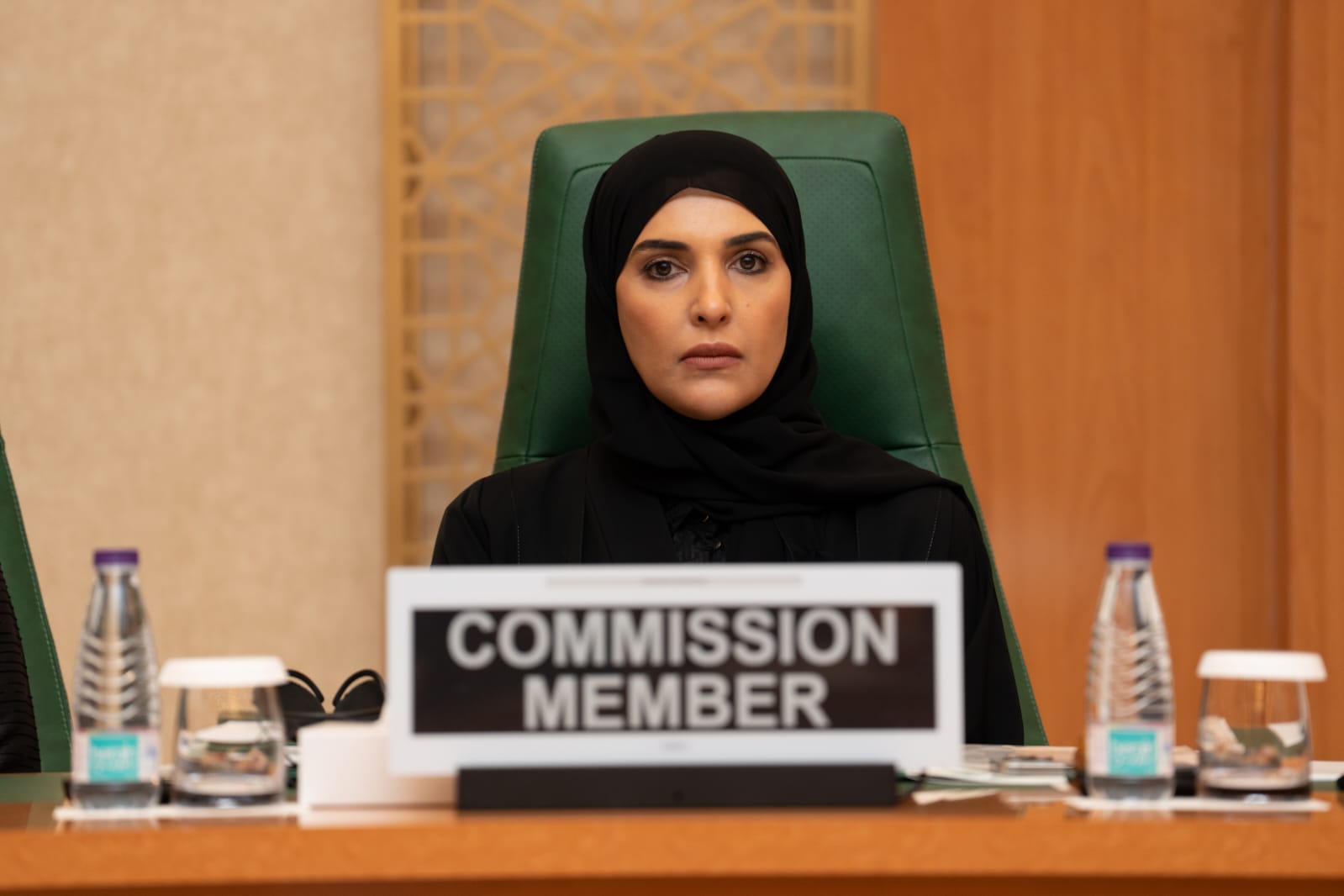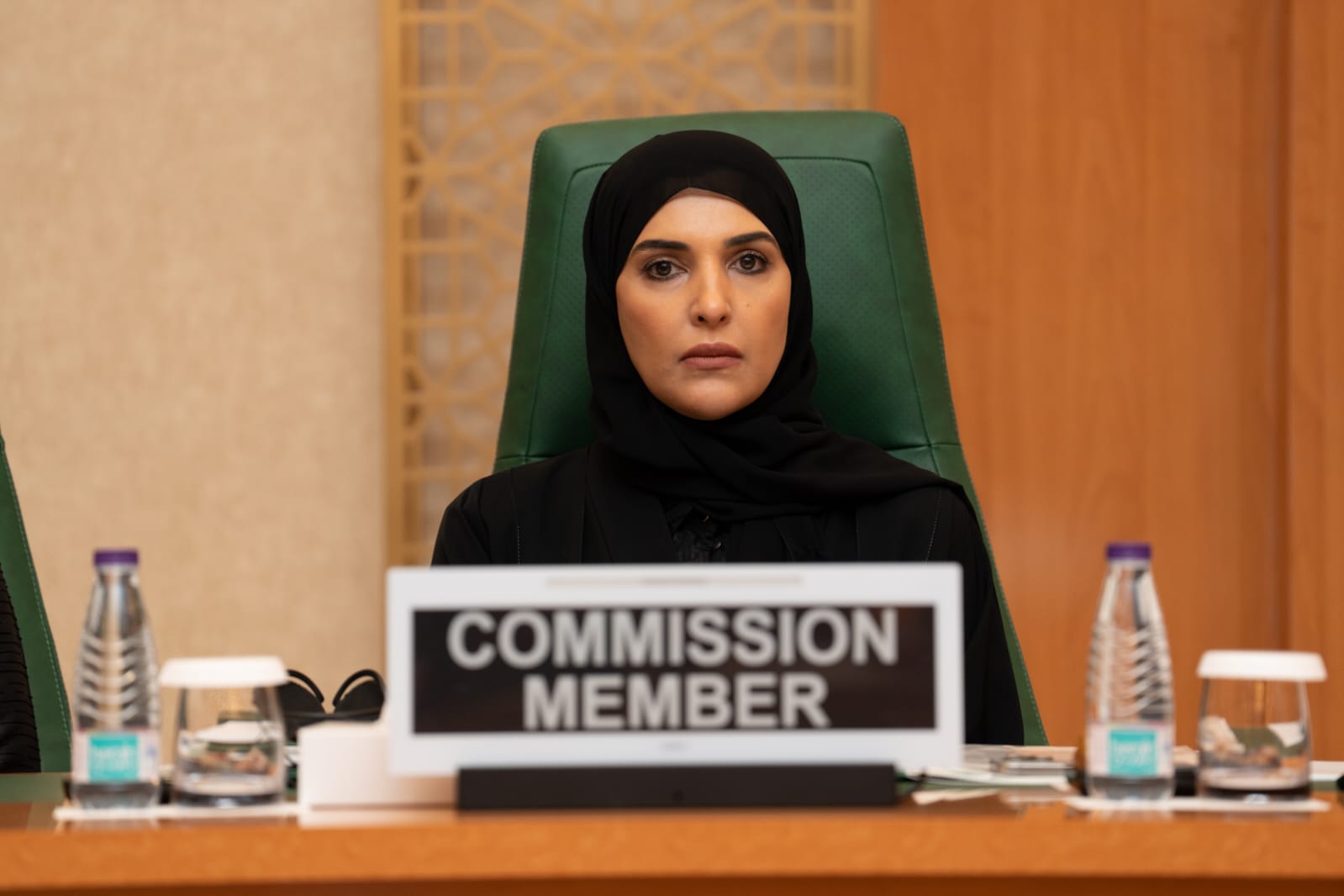الرجوع الى الأخبار
The NHRC participated in the 28th session of the Human Rights Council in Geneva
The NHRC participated in the 28th session of the Human Rights Council in Geneva, represented by Dr. Ali bin Smaikh Marri, the NHRC's chairman, in which Al Marri presented a working paper entitled " The role of National Human Rights Institutions in Promoting the realization of rights in poverty eradication".
Dr. Al-Marri in the working paper stated that, national institutions perform its supervisory role entrusted with them, and act as a source of reliable information, in addition to being key factors in pushing governments towards formulating or amending their legislation in line with international standards, and urging them to implement their obligations under international conventions ratified by them. In addition to other recommendations at the legislative level in which national institutions work on the ground and are able to address, describe the issue of poverty, analyze its causes, and provide practical solutions that governments must take into account. poverty is a social scourge associated with the manifestations of exclusion and marginalization, the deterioration of living standards, high unemployment rate, the spread of indecent housing, begging, and street children. The poverty belts around the Middle East cities turn into a belt of explosives, by the growing influence of religious justifications claimed by terrorist groups .Poverty exists in Middle East countries in areas characterized by a clear absence of state institutions and infrastructure services, making citizens residing in these areas the most aggrieved at the system in their countries; due to the fact that the political authorities in these countries are not democratic, they deal with the situation in these areas in a negative and assaultive manner.
Where poverty begins to inflate, disease and ignorance prevail, the proportion of births and population density increase in narrow patches lacking proper health and education services, where mortality, dropout and crime rates also increase; all these factors make these places social spots, requiring a real and sustained cure.
With regard to the State of Qatar, Al Marri pointed out that Qatar is among the Gulf Arab states, which has rich natural resources, where 85% of the population is of non-citizens, who came from various countries to benefit from the available employment opportunities, due to the lack of workforce. On the basis of the close correlation between poverty and development, and the impact of each on the other negatively or positively, the State of Qatar adopts appropriate national development policies aimed at continuous improvement of the welfare of the entire population on the basis of their active, free and purposive participation in development and fair distribution of benefits resulting therefrom. Qatar has the world's highest per-capita income, and the unemployment rate reached 0.30% in 2014, non-citizens also enjoy high income which in turn makes Qatar a desirable destination by thousands of young people and families from around the world
Al Marri explained that Qatar National Vision 2030 rests on four pillars, including Human development: To enable all of Qatar’s people to sustain a prosperous society, Social development to maintain a just and caring society based on high moral standards and capable of playing a prominent role in the global partnership for development, Economic development: to achieve a competitive and diversified economy capable of meeting the needs of, and securing a high standard of living for, all its people for the present and for the future, and Environmental development: to ensure harmony among economic growth, social development and environmental protection. The first National Development Strategy for the State of Qatar was prepared to set a path towards achieving the goals of Qatar National Vision 2030, and of the most important decisions was issuing a law establishing Health and Education Fund providing sustainable financial resources to health and education services with a capital of three hundred and sixty billion riyals to finance health and education programs in the State of Qatar, serving nearly 2,334,029 residents.
Al Marri explained that The Social Development Center, a non-profit organization which was founded in 1996, plays a protective role by offering extensive services to create social benefit in Qatar, including family support programs, guidance programs and career training programs; it also offers interest-free loans to deserving families, and initiate awareness programs through a variety of campaigns.
Dr. Al Marri highlighted in the working paper the pioneer role of the State of Qatar in the field of International Cooperation to combat poverty and extreme poverty, provision of support by the Qatari government for hundreds of humanitarian and investment projects in poor countries, in addition to efforts made by institutions, including "Qatar Red Crescent Society", which provides relief and development services, "Silatech Foundation", which provides loans for young people to open investment horizons and allow them to communicate with businessmen, "Education Foundation is above all", which focus on the protection of the right to education, and "Reach Out to Asia", which works to build model schools in many poor countries, in addition to the investment projects of charity organizations in the sectors of agriculture and industry in countries, such as Sudan, Somalia, Eritrean, Pakistan and the Comoros, in addition to a number of African countries.
Regarding the role of national human rights institutions in promoting the realization of the rights to eradicate poverty, Al Marri said, " The role of national institutions is based on guiding principles on extreme poverty and human rights, which focus on respect for the dignity of every human being, and the indivisibility and effective exercise of human rights; those principles emphasizes the responsibility of States to ensure that people living with poverty enjoy their human rights on an equal footing, including protection prescribed by law without discrimination, promoting gender equality in marriage, employment opportunities and acquisition of economic resources, children's enjoyment of basic services, including health care and adequate food, housing, drinkable water, education, recognition of the people who living with extreme poverty and considering them free and independent, ensuring their participation in all stages of adopting and implementing policies that affect them, and enjoying the right to seek, receive and disseminate information on all decisions that affect their lives and having the full available information on the remedies."
Al Marri pointed out that National institutions play an important role in monitoring the application of those principles by the states, in addition to their mandate, which is considered one of the national mechanisms for the Eradication of Poverty, including studying national legislation in the light of international human rights standards, and proposing amendment, replacing or adopting new legislation, encouraging and urging States to accede to international conventions, and withdrawing reservations to conventions ratified by them, receiving Complaints from the vulnerable groups, and trying to find appropriate solutions, urging governments to consider specific issues related to human rights, monitoring governments' implementation of international obligations in the achievement of equality and non-discrimination, raising awareness and educating the public about civil, political, economic, social, cultural rights, as well as law enforcement officials and the judicial system in the state, cooperation with civil society organizations, to identify the needs of the target groups in the adopting and implementation of policies, cooperation with regional and international mechanisms to upgrade and improve human rights, promoting good governance and accountability in accordance with the post 2015 development plan, and dissemination of objective and transparent reports on human rights conditions.
Turning to the best practices of national human rights institutions in the Middle East, Al Marri referred to the Experience of the Independent High Commission for Human Rights of Iraq (IHCHR) on determining poverty status and providing accurate figures on the true dimensions of the problem.
Dr. al Marri provided a set of recommendations for National Human Rights Institutions in the Middle East on promoting the realization of the rights to the eradication of poverty, including, disseminating guiding principles on extreme poverty and human rights, adopting, disseminating, and updating a database for poverty and unemployment on an annual basis, in cooperation with the competent authorities, following-up on recommendations of governments, and publishing outcomes of these recommendations transparently within their annual reports, conducting studies on poverty and development, and their relationship to terrorism, and cooperating with civil society organizations and charities in order to reach the target groups and involving them in adopting means to resolve their own problems.
الصور


